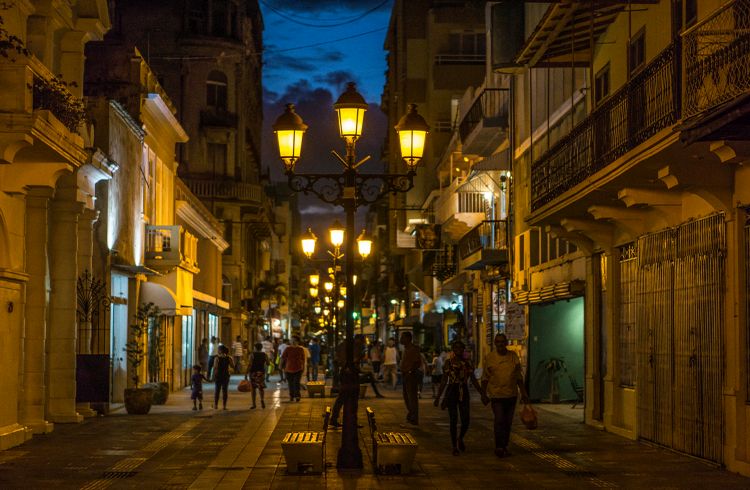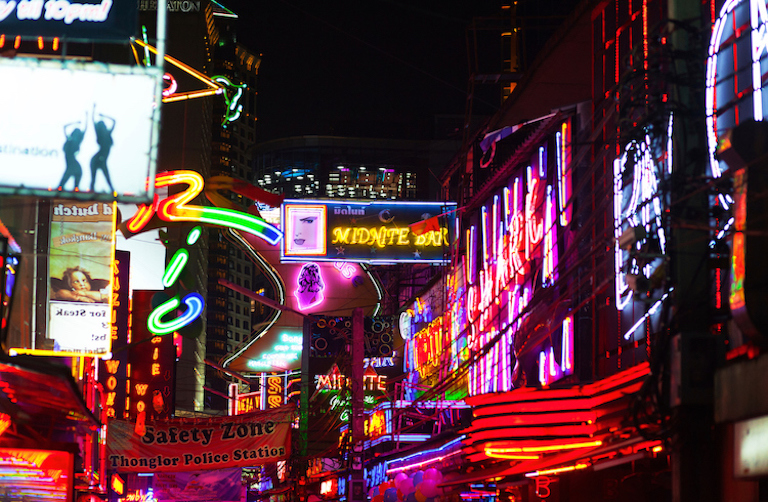How to Avoid Sex Tourism in the Dominican Republic
Here's how to avoid being hassled on your trip to the Dominican Republic, and what you need to know about the local community.
 Photo © iStock/Instants
Photo © iStock/Instants
Don't let sex tourism put you off experiencing the beautiful coast and mountainous landscapes of the Dominican Republic. The country is generally safe, with friendly, laid-back locals.
Here's how to avoid being harassed while traveling around this Caribbean nation.
Poverty and prostitution
The Dominican Republic ranks fourth in the world of countries exporting large numbers of sex workers.
Travelers will see legal brothels, "massage parlors", and sex workers in many of the downtown areas, such as the Puerto Plata province and Santo Domingo.
The country has a high incidence of poverty, with a third of the population living below the breadline, forcing many women (and men) turn to sex work according to The World Bank. Unemployment, abuse, drugs, gang violence and lack of education opportunities also contribute to poverty. The age of consent for any sexual activities in the Dominican Republic is 18.
If you're traveling to the country around the Christmas holidays, you'll probably see an increase in the number of girls working. Male prostitutes are also common and contribute to the country's high rate of HIV and AIDS infection, with around 68,000 locals living with the disease in 2016.
The south coast's Boca Chica and the north coast's Sosua are the two big areas for prostitution. These locations look like your average tourist locales during the day, but at night, prostitutes are easy to find, with many sex workers mixing in bars and clubs, targeting relatively well-off travelers.
Human trafficking
Human trafficking is a major contribution to sex tourism in the Dominican Republic as the country is considered by the United Nations and many human rights organisations as a destination and transit point.
Despite human trafficking being made illegal in 2003, women from neighboring Caribbean and Latin American nations such as Haiti and Venezuela are bought to the Dominican Republic and can end up trafficked even if they originally chose to willingly go to the country.
Local women can also become trafficked, often sent to Western Europe e.g Spain and Switzerland, Argentina, Costa Rica, Panama and North America. Once trafficked, women can end up in forced labor against their will including sexual enslavement.
Child sex tourism
There is an increase in the numbers of underage locals entering prostitution, due to poverty and/or escaping abusive home situations. Human rights organization International Justice Mission reported in 2015 that one in four sex workers in the Dominican Republic was underage.
Disturbingly, many foreign nationals who seek out this nefarious trade go unpunished as prostitution laws are rarely enforced. Despite many hotels signing a code of conduct to prevent the exploitation of minors in their properties, and actively advertising that it's illegal to bring minors to their property, the crime often occurs at private accommodations such as apartments and cabanas. With very little government regulation beyond commercial hotels, the exploitation of minors continues.
Having sex with a minor can be punished with up to 30 years in jail plus penalties in the visitor's home country.
Tender traps
Men can go to strip clubs and pay an 'exit fee' to the establishment to take a prostitute to their accommodation. But watch out, it's not uncommon for girls to rob their clients. Others may pickpocket men on the street.
Beware of sex workers who try to start up long-distance relationships with tourists after they return home, in the hope of continuing an income stream.
Avoid being hassled
If you're a man out without a woman, you'll get harassed by prostitutes in certain parts of town.
If you're a woman, be prepared to see hustlers haggling and prostitutes persuading.
While some travelers do go to the Dominican Republic to pay for sex, many prostitutes and hustlers figure any tourist can be easily convinced to do the same. Travelers who aren't interested in sex workers have reported being harassed (sometimes physically) constantly at night by hustlers and prostitutes. If you approached by a prostitute, saying "No" firmly and walking away should suffice.
Women travelers, particularly those traveling alone, should expect Dominican men to be aggressive in their pick-up approach. This type of behaviour occurs particularly in local bars and nightclubs outside the resort areas.
It's recommended that you act confidently and firmly rebuff the attention. Dressing conservatively may also help.
Related articles
Simple and flexible travel insurance
You can buy at home or while traveling, and claim online from anywhere in the world. With 150+ adventure activities covered and 24/7 emergency assistance.
Get a quote

No Comments